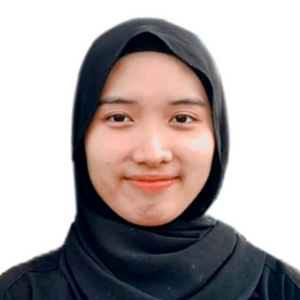Stricter measures needed to prevent children from viewing porn

SHAH ALAM - Stricter measures should be taken to reinforce some control over children’s freedom on the Internet, says expert.
Human Rights Commission of Malaysia (Suhakam) commissioner Professor Datuk Noor Aziah Mohd Awal said adults watching pornography was one thing, but children watching it was something that should be stopped in order to save them from getting directly involved with online sexual abuse.
She said this when commenting on the statement by Women, Family and Community Development Minister Datuk Seri Rina Mohd Harun who said data furnished by the police revealed that 106,764 Internet Protocol (IP) addresses suspected of sharing child pornography were reported from 2017 until August this year.
Aziah said the government needed to include all internet provider companies in its effort to control and monitor children’s involvement in online sexual abuse.
As for parents, she said they must be prepared and educated on how to use the internet safely so that they can pass that knowledge to their children.
She said control measures were crucial following the easily-accessible mature contents online especially on social media platforms such as Instagram and YouTube.
“My concern is that children easily stumble upon contents on sex on YouTube when they are watching something else and it piqued their curiosity to check it out, and this is worrying because it is open and how can we see if the ones clicking is an adult or a child?.
“We need some sort of control to make sure children are not exposed to this dark side of the online (world),” she told Sinar Daily.
She added that this was also the reason why the objectives of the campaign by the ministry focused on increasing children’s understanding on how to use social media safely, highlight the dangers of unmonitored social media usage and raise awareness among parents and the public regarding the issue.
She said parents should take the responsibility to control which contents were suitable for their children and which were not, to make sure the children did not misunderstand the Internet as a source of information for sex.
“We are not trying to deny children’ rights, but we want some control in terms of pornographic images or any sexual abuse online to avoid children from becoming one of the victims.
“We must make sure that the children could understand about this and not get the idea of sex from somewhere on the Internet. This is why the campaign would focus on sex education in schools,” she said.
Meanwhile, Monsters Among Us founder Firzana Redzuan said the campaign by the ministry needed to be multi-folded where there should be a lot of strategies in order to handle the issue.
She admitted that the campaign has its objectives and there was no harm in that, but any campaign involving children needed to also include the children when designing the campaign.
She added that there were children who viewed pornography but most of the time it was due to their curiosity and influence from peers.
However, parents are advised to not punish their children because it is inevitable for them to stumble upon such sexual materials.
Instead of disregarding the issue and punishing their child, she said parents should have a proper discussion about it with them.
“Parents should take that opportunity as a chance to have a discussion or dialogue with your child to make them understand that pornography is not a source of information and knowledge.
“They should dive deeper into their parental role so that they can be the safe space for their children to learn about sex education.
“We should encourage comprehensive sexual education being taught not only in schools but also at homes,” she added.
On the other hand, adults should not just get away scot-free since they should change their mentality that underestimated the severity of viewing child pornography.
She further said the biggest challenge in Malaysia was that many do not see the severity of children being involved in sexual videos.
“They think it is funny, harmless but what they do not acknowledge is the children being physically, emotionally and mentally abused behind the screen.
“It is not just men, but women themselves have this mentality that watching child sexual abuse material is nothing big, so it is important to increase Malaysians’ literacy on the laws.
“They need to know that watching child sexual abuse material is a crime and if there are proofs of them possessing such materials and that they have searched those kinds of materials on their Internet browser, that is already a crime itself.
“So, amplifying these laws can be one way to increase people’s understanding on the issue,” she added.
Download Sinar Daily application.Click Here!















